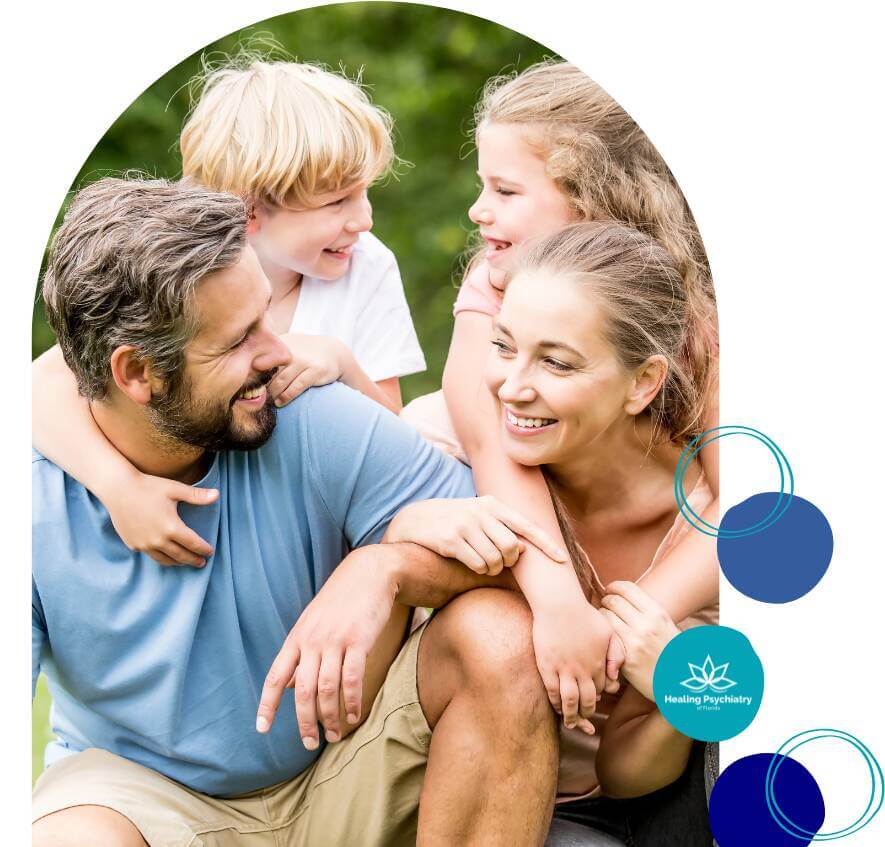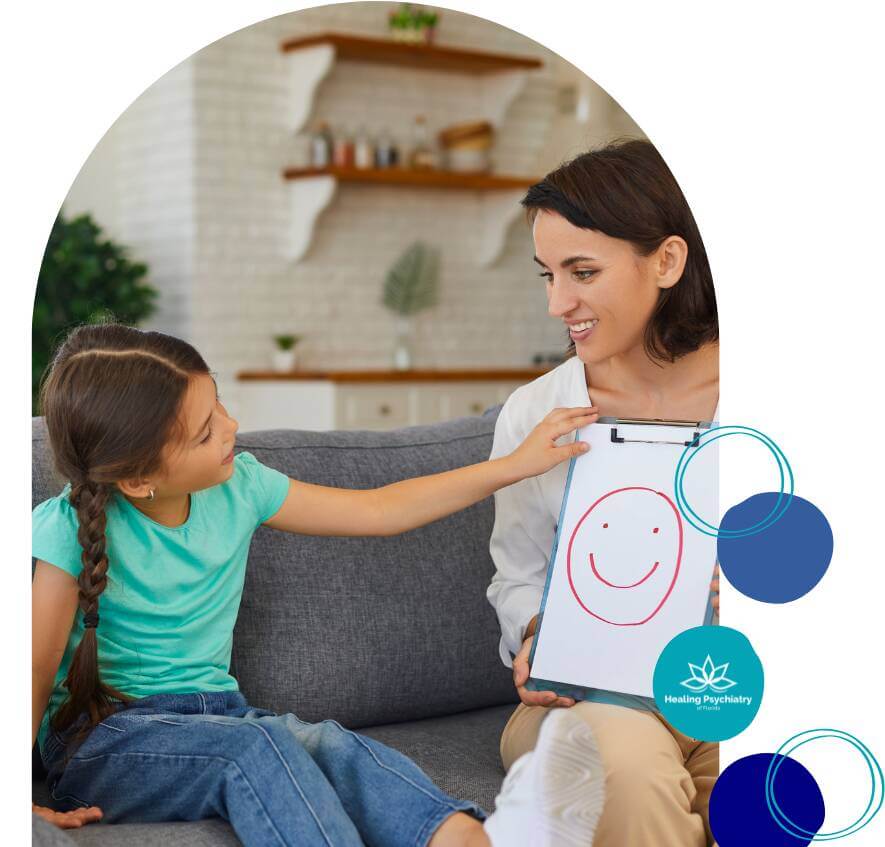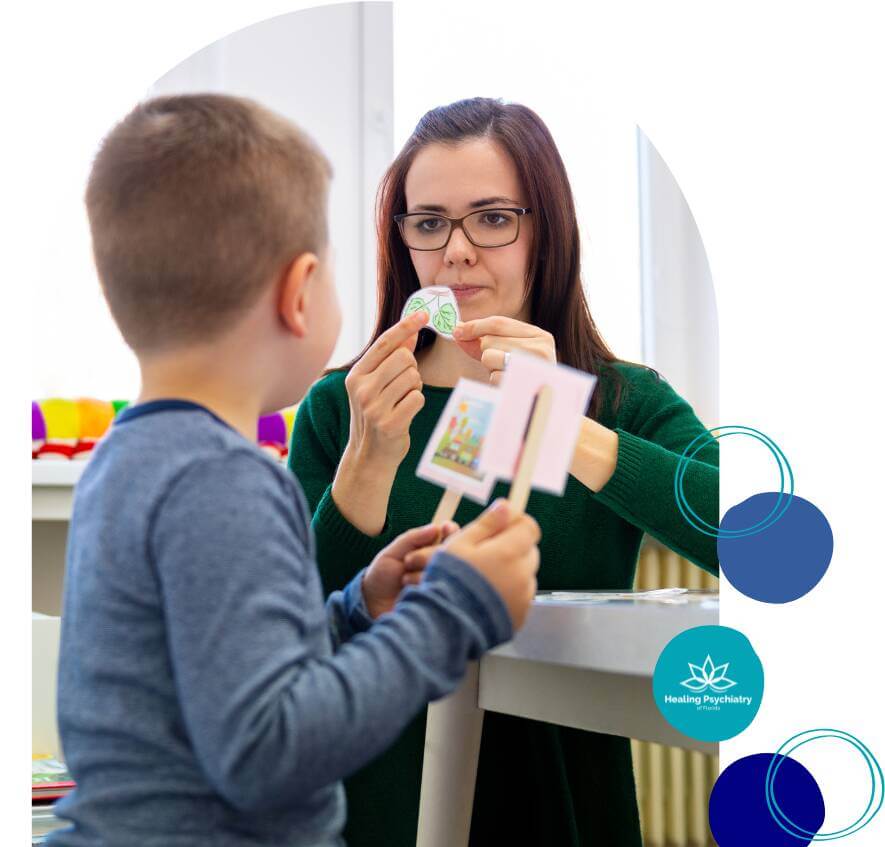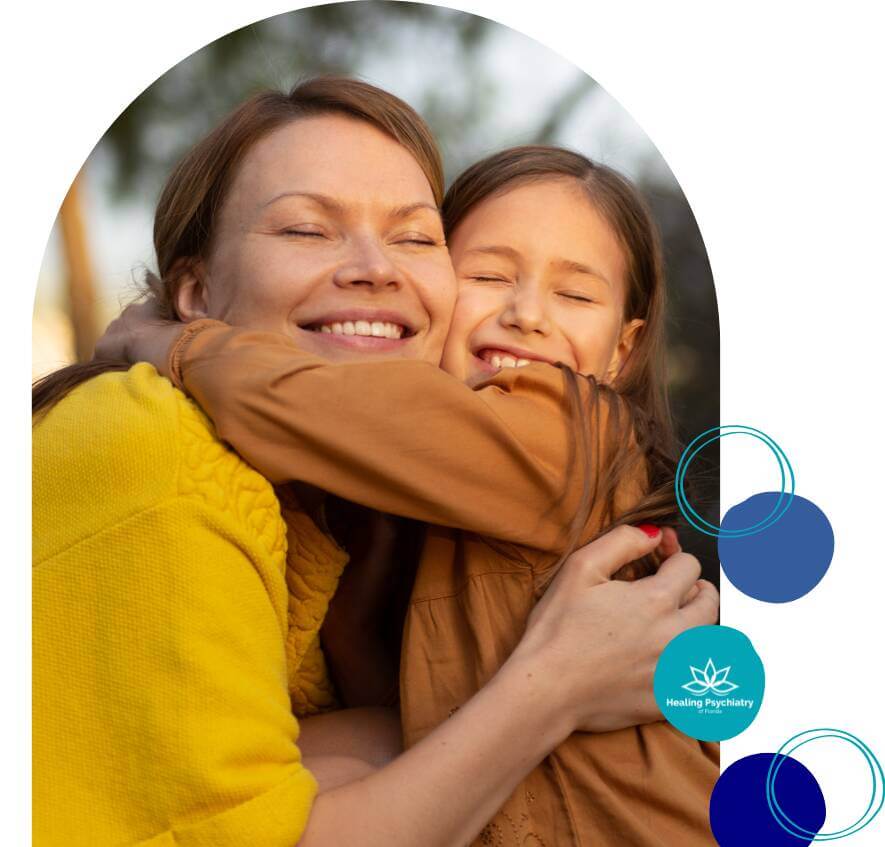Children’s Therapy for Trauma
Trauma changes the way a child sees themselves, their family, and the future they once trusted. Whether the traumatic experience was a sudden loss, exposure to domestic violence, a serious accident, or experienced abuse, the impact often lingers long after the event itself.
At Healing Psychiatry of Florida, we believe that healing begins not by erasing the trauma, but by helping each child feel safe enough to build a new story for themselves. Our therapy services focus on rebuilding resilience, teaching healthy coping strategies, and restoring a child’s ability to experience joy, trust, and connection. Every child deserves the chance to reclaim their own future — and with the right mental health services, families help make that future possible.

Start Your Session Today
How Traumatic Events Shape a Child’s Emotional and Developmental Growth
Trauma doesn’t just disrupt a child’s present — it alters the blueprint of their future. Experiences like childhood trauma, domestic violence, sexual abuse, or repeated traumatic events leave deep marks on a young child’s sense of safety and belonging. Many children exposed to trauma begin showing trauma symptoms quickly: sleep disruptions, separation anxiety, intrusive thoughts, and growing difficulties in trusting family members and other adults.
When Emotions Turn Against Them
Emotional pain after trauma often emerges first, long before a child finds the words to explain their feelings. Young people might show anxiety that dominates school life, fear of new experiences, or separation anxiety so intense that leaving home becomes a daily battle. Intrusive thoughts triggered by reminders of traumatic experiences invade playtime, learning, and even quiet moments at home.
Behavior That Speaks What Words Cannot
Behavior problems often become a child’s only language after trauma exposure. Some older children develop explosive anger, others retreat into silence, avoiding school and isolating from friends. Behavioral problems sometimes resemble developmental disorders, making it harder for families and schools to recognize the root cause — traumatic stress, not willful defiance.
Dreams Put on Hold
Trauma not only steals joy, it teaches many children that dreaming about the future is risky. Without proper trauma treatment, children and adolescents carry forward untreated injuries into adulthood — injuries that block language development, school performance, and emotional regulation. With a strong treatment plan focused on the child’s age group and specific needs, children can rediscover a sense of safety and possibility.
Insurances Accepted










See what others are saying about Healing Psychiatry of Florida
Meet Our Mental Health Specialists
Our team of therapists understands how traumatic experiences leave young people feeling disconnected from themselves and others, and we know how to help children rebuild, step by step, with care grounded in evidence-based practices.
Through trauma treatment tailored to each child’s age group, symptoms, and developmental needs, we guide families toward meaningful healing. Recovery isn’t just possible — it’s expected when therapy sessions are delivered with skill, patience, and heart.




Methods to Support Healing
Healing Psychiatry of Florida provides therapy sessions rooted in evidence-based approaches such as cognitive behavioral intervention, trauma-focused cognitive behavioral therapy, and cognitive processing therapy—methods backed by decades of trauma treatment research. During individual sessions, children participate in structured activities designed to help them recognize symptoms, challenge unhelpful thoughts, and reinforce resilient thinking. Therapy supports the development of relaxation techniques, management of intrusive thoughts, and the reprocessing of traumatic experiences in a way that aligns with each child’s age and developmental level.
Building Safety and Trust
Establishing a stable, supportive therapeutic relationship is vital for children who have experienced trauma, and therapists at Healing Psychiatry of Florida use trauma-focused methods to help children regain a sense of safety both in therapy and in their everyday lives. Sessions guide children in distinguishing between present-day reality and past traumatic experiences, helping them learn to recognize the difference between appropriate fear and misplaced anxiety. Families—including parents, foster caregivers, and other supportive adults—play a key role in reinforcing therapeutic progress through structured supervision, live modeling of healthy communication, and trauma-informed caregiving practices.


Looking Toward the Future
Trauma recovery at Healing Psychiatry of Florida is measured by real-life progress in children’s behavior, emotions, and relationships. Through therapy, children develop practical skills like emotional regulation, relaxation, and problem-solving, helping them manage trauma from abuse, violence, or major life changes. As they reshape their thoughts and emotional responses, many experience better school performance, stronger relationships, and greater confidence—showing that healing happens both in and beyond the therapy room.
Children’s Therapy for Trauma FAQs
How do you approach treating children with complex trauma or multiple trauma experiences?
When a child’s trauma exposure involves multiple events, such as domestic violence combined with foster care transitions or sexual abuse, treatment must go beyond surface symptoms. We build trauma treatment plans that account for complex trauma, layering individual therapy services, group intervention, cognitive behavioral strategies, and crisis intervention resources as needed. The goal is to support the child’s emotional regulation, behavior improvement, and long-term developmental growth at every stage.
What happens if my child shows new symptoms during therapy?
It’s common for other symptoms to emerge as therapy progresses, especially once a child feels safe enough to express previously hidden trauma effects. Our therapists regularly update the treatment plan to reflect new needs, ensuring therapy sessions stay responsive and targeted. New behavior problems, anxiety spikes, or emotional regressions are not setbacks — they are opportunities for deeper healing when handled with skill and compassion.
How do you differentiate between trauma symptoms and other diagnoses like ADHD or mood disorders?
Posttraumatic stress disorder can sometimes mimic other disorders, making diagnosis complex. Our therapists use evidence-based assessment tools and careful observation over multiple therapy sessions to distinguish trauma symptoms from conditions like ADHD, depression, or anxiety disorders. Recognizing the real roots of a child’s struggles ensures they receive the right mental health services, not just symptom management, but true trauma healing.
What support is available for families after the child completes therapy?
We believe that healing doesn’t end when therapy sessions do. Families are offered resources for ongoing emotional support, relapse prevention strategies, and guidance on nurturing treatment gains at home. For children who have been sexually abused or lived through severe trauma effects, sustained involvement from parents, schools, and community services is critical to maintaining progress and preventing retraumatization.
Is therapy different for younger children compared to adolescents?
Yes. A young child processing trauma may focus more on play-based cognitive behavioral approaches and relaxation skills, while adolescents engage in more structured cognitive processing therapy and verbal interventions. Therapy is matched to the child’s age group, language development, and the complexity of their trauma experiences to ensure maximum effectiveness at each developmental stage.
Contact us
For more information about our systems and services, contact Healing Psychiatry of Florida.
Healing Psychiatry of Florida
Altamonte Springs
Lake Baldwin
Altamonte Springs
108 W Citrus St.
Altamonte Springs, FL 32714
Monday – Thursday: 8:00 AM – 6:00 PM
Friday: 8:00 AM – 5:00 PM
Saturday & Sunday: Closed
Lake Baldwin
3203 Lawton Rd. Suite 140
Orlando, FL 32803
Monday – Thursday: 8:00 AM – 6:00 PM
Friday: 8:00 AM – 5:00 PM
Saturday & Sunday: Closed
